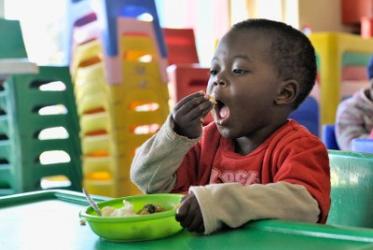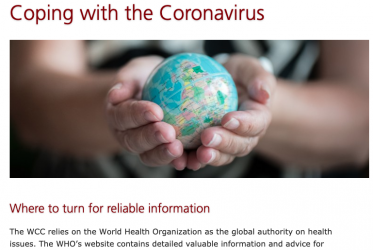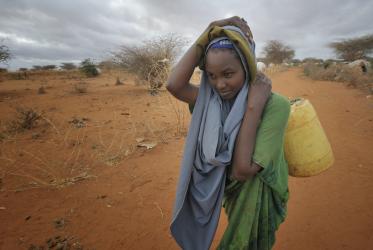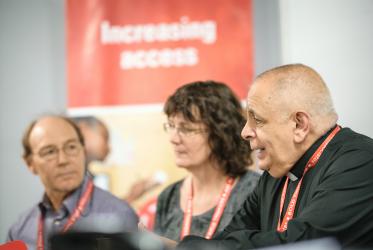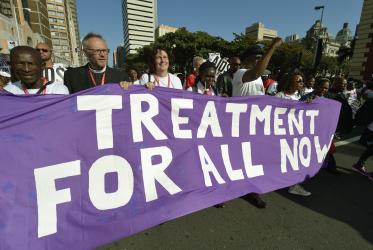Displaying 41 - 60 of 82
G7 must address famine
22 May 2017
Applications open for WCC Eco-School
10 May 2017
UN discussion focuses on women, HIV and property rights
21 March 2017
“It’s time to be brave, to form diverse partnerships”
02 March 2017
Seven weeks of Lent highlight water crisis in Africa
01 March 2017
Zambia: “On HIV, we do not compete. We work together.”
20 October 2016
Kenya: Voice of faith communities crucial in overcoming HIV
14 October 2016

